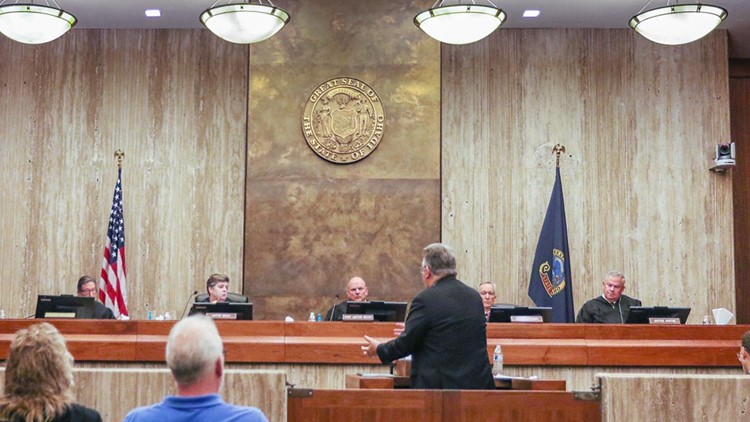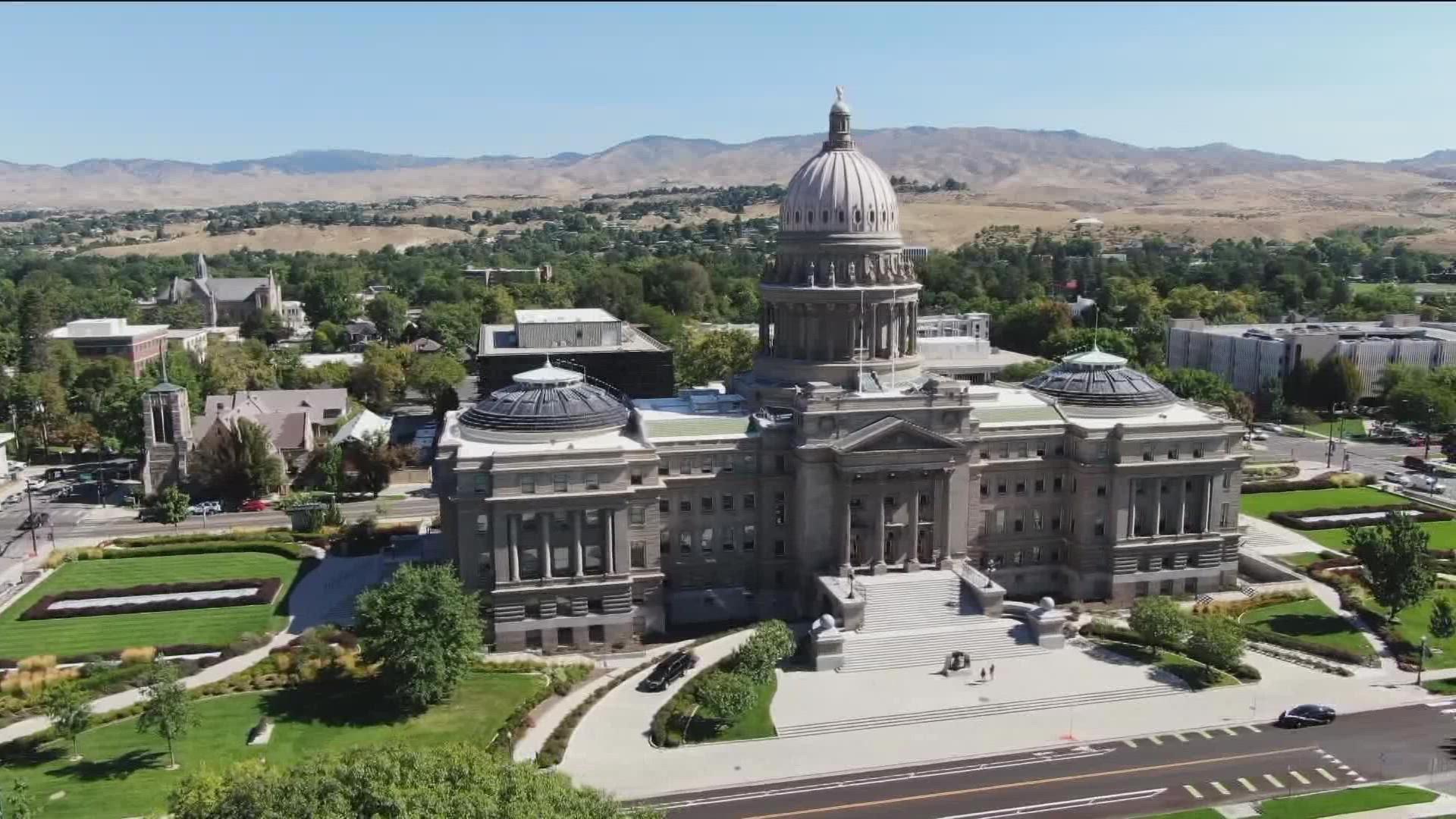BOISE, Idaho — This article originally appeared in the Idaho Press.
Where the Idaho Supreme Court had planned to hear arguments on the merits of a lawsuit challenging the state’s new Texas-styled abortion law on Aug. 3, that’s now been vacated, and the court instead will hear a single hour of arguments that day on three key points in two separate lawsuits over abortion in Idaho.
Both lawsuits were filed by Planned Parenthood. The first challenges SB 1309, which the court has put on hold while the lawsuit is pending and which allows relatives of a fetus aborted after six weeks gestation to sue doctors for minimum $20,000 damages. The second challenges Idaho’s “trigger law,” which will make all abortion a felony in Idaho, with just three narrow exceptions, starting in late August, now that the U.S. Supreme Court has overturned Roe v. Wade. That second lawsuit claims the trigger law violates the Idaho Constitution and the Idaho Human Rights Act.
The three key questions the court wants explored:
• Should the court put both laws on hold while the two cases are pending?
• Should the two cases be consolidated into a single one?
• Should either or both of the cases be transferred down to the district court level for trial before being taken up by the high court?
All sides in the two cases have been given until July 20 to submit written arguments on those points in advance of the Aug. 3 court proceeding. Briefs already have been submitted on the merits of the first case, but won’t be considered on Aug. 3.
“I’m very fascinated to see what happens,” said McKay Cunningham, a law professor who teaches at the College of Idaho. “I think the Idaho Supreme Court has a lot of different considerations to make.”
The toughest of the three questions – and the most politically fraught – likely is whether to put the trigger law on hold, Cunningham said. Idaho’s anti-abortion trigger law, passed in 2020, takes effect 30 days after a judgment overturning Roe v. Wade. The nation’s highest court overturned that landmark 1973 case, which established a constitutional right to abortion, on June 24. But it has yet to issue its judgment formalizing the ruling. The 30-day clock starts ticking after that judgment issues.
Under the trigger law, the only exceptions would be to prevent the death, though not the disability, of the mother; or for cases of rape or incest documented with a police report. All other abortions, at any stage of pregnancy, would become crimes, punishable by prison time and loss of medical licenses.
The Idaho Attorney General’s office, in filings with the court on behalf of the state, government officials and the state boards of medicine, nursing and pharmacy, argued that the trigger law isn’t yet “ripe” for consideration by the high court, because there’s not anyone who can claim specifically to be injured by a law that hasn’t yet taken effect. Once someone can make that claim, they argued, the proper venue would be local district court, where any decision could then be appealed to the higher court. They also argued against putting the law on hold.
The Attorney General’s office also argued against putting SB 1309 on hold while it’s challenged in court, and filed a motion in April asking the court to reconsider that move. Among the arguments was that the court can’t enjoin SB 1309 because its only enforcement mechanism is for private parties to file lawsuits, not for government to take action, and courts can’t block private parties from filing lawsuits.
Attorneys for Planned Parenthood, in their arguments against lifting the stay, wrote, “The state of Idaho is the proper respondent to be enjoined in this case because Idaho law provides that the state can be directly sued for violations of the Idaho Constitution.” Their lawsuit, among other arguments, argues that the private lawsuit enforcement mechanism itself violates the state Constitution.
After reviewing written arguments for and against the state’s motion to vacate the stay of SB 1309, the Supreme Court denied the motion on May 20. The order said it was issued “after due consideration,” but offered no explanation.
However, in its orders issued in advance of the Aug. 3 hearing, the court asked for arguments on “whether this court should continue to stay the enforcement of SB 1309 pending the outcome of this litigation.”
The court order also noted that after the Idaho court had initially set arguments on the merits of the first lawsuit for Aug. 3, the U.S. Supreme Court issued its opinion in Dobbs v. Jackson Women’s Health Organization, overturning both Roe v. Wade and a subsequent 1992 case, Planned Parenthood v. Casey.
“While petitioners grounded their petition on Idaho’s Constitution, their arguments were premised, in part, on the contention that the Idaho Constitution should be interpreted consistently with those provisions of the United States Constitution that formed the basis for the decisions in Roe and Casey,” the Idaho court said in its order. “The Dobbs decision has altered the landscape of the longstanding federal constitutional law upon which petitioners relied and which recognized a fundamental right to privacy, as it applies to abortion laws.”
An identical paragraph was included in the court order in the second Idaho lawsuit that set it for arguments Aug. 3 on the three points.
On that day, according to yet another order, this one issued by the court Thursday, each side will be allowed 30 minutes for arguments, for a total of one hour.
This article originally appeared in the Idaho Press, read more on IdahoPress.com.
Watch more Local News:
See the latest news from around the Treasure Valley and the Gem State in our YouTube playlist:



